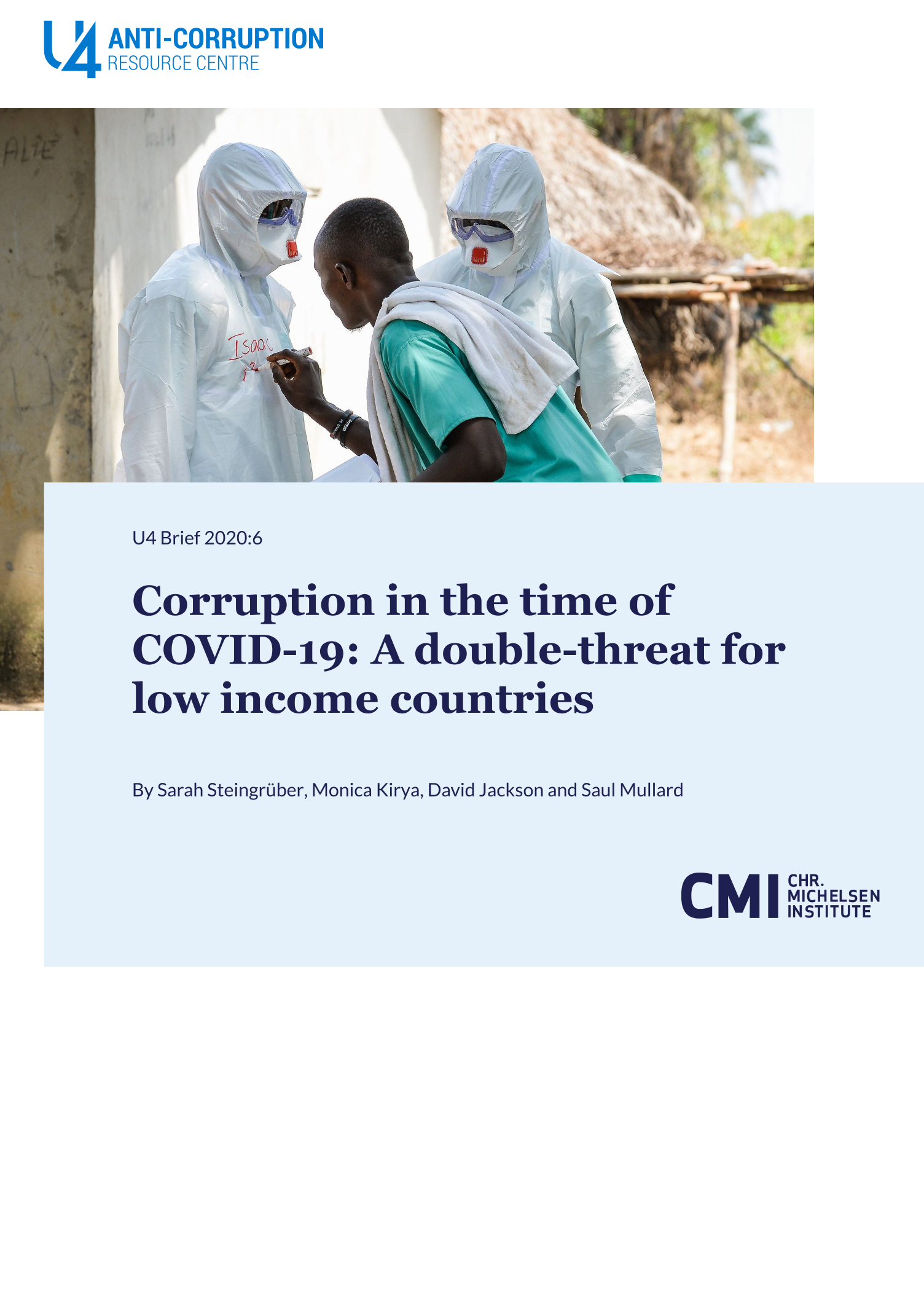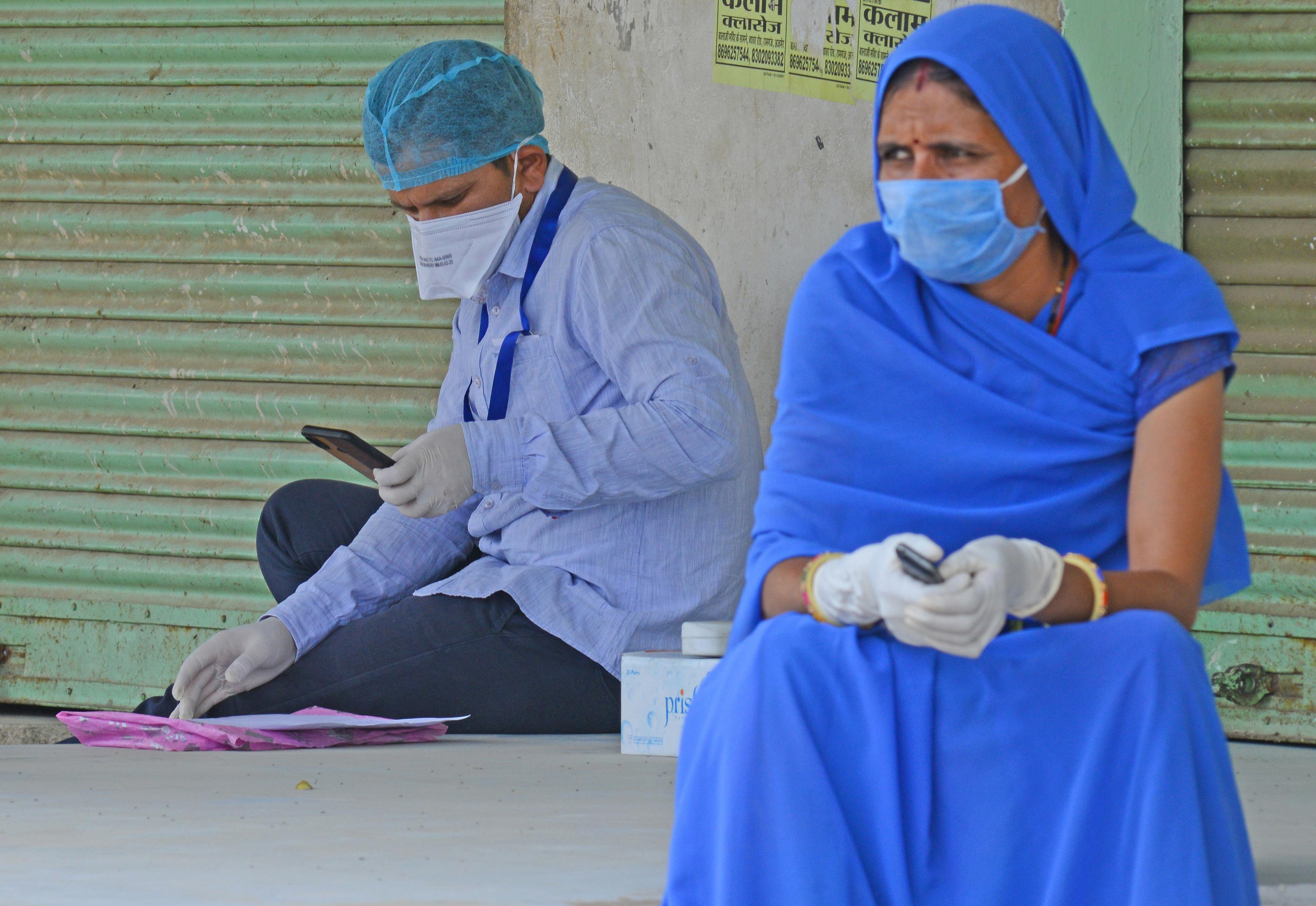Main points
- In many countries, responses to COVID-19 have seen breaches of anti-corruption standards such as cutting corners in procurement processes, or persons in power taking advantage of the crisis to increase their private benefits.
- Traditional anti-corruption policies are insufficient in situations of outbreak response, as experience from the Ebola outbreak has shown. Anti-corruption policies have to be built into the sector-based intervention design.
- There must be a strict practice of regulatory procedures for drug research and development, with decision making kept under scrutiny to secure public interest and equal access.
- Donors should channel funding through existing channels that already apply anti-corruption best practice for health.
- Health workforce governance, recruitment, and management in many developing countries has failed – through corruption and lack of transparency – to ensure that staff is able to implement complex treatment protocols. As pressure to recruit increases, effective crisis management depends on following a certain standard of hiring and staff management procedures.
- It is important to keep involving civil society organisations in the important role of monitoring health outcomes and procurement systems, to track budget spending, and provide user feedback.
- Pandemics affect women and men differently. Donors should apply a gender-lens in the response to COVID-19.
- Practitioners seeking to ensure and build integrity in the health sector require a thorough understanding of the social forces that perpetuate the corrupt practices.



